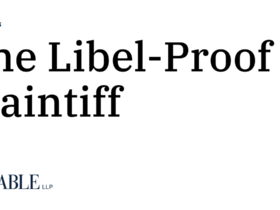From online reviews found on platforms to online conversations on both Facebook and Twitter, the online world has influenced how reputations are built and retained in Australia. A solid internet presence is a necessity rather than a luxury, and this seven-point guide crafted under the guidance of Defamation lawyers in Perth will help you save your reputation from the digital storm. Join us as we provide the essential steps to overcome reputational harm.
Seven Essential Steps to Prevent and Overcome Reputation Harm
Here is what you can do:
1. Proactive Reputation Management:
Proactive reputation management is taking control of your online narrative before problems arise. It’s like having an early warning system for your reputation. You can find potential issues at their early stages by constantly monitoring online mentions across the web, social media platforms, and review sites.
Tools such as Google Alerts notify you of new mentions of your name or brand, and social listening platforms track conversations and sentiment.
2. Build a Strong Online Presence:
A robust online presence acts as a shield against negative publicity. It encompasses building and keeping up a professional-looking website that shows your brand or personal story well and in the best possible light. Having active, participating profiles on applicable social media lets you reach your audience and get your perspective heard.
Good reviews on proper platforms, such as Google Reviews or industry-specific review sites, are trustworthy. Controlling the narrative through these channels establishes a positive foundation to withstand attacks.
3. Respond Quickly and Appropriately:
Response to a negative incident is always very important, and it has to be timely and appropriate. Negative feedback must not be ignored because it will be interpreted as a sign of indifference or even guilt, making the situation worse. Acknowledge the problem in public, and if necessary, apologize sincerely; outline the steps you are taking to address the problem. Accountability and a desire to resolve the problem will reduce the damage done to your reputation.
4. Transparency and Honesty:
Transparency and honesty are the pillars of good reputation management. Trying to hide mistakes or lie to the public will almost always have a boomerang effect, causing more harm. Owning up to mistakes, taking responsibility, and communicating openly with your stakeholders will build trust, reducing reputational damage. This is tough in the short term but builds long-term credibility and strengthens your reputation.
5. Engage with Your Followers:
Engaging with your audience is the only way to establish strong relationships and create a positive online community. Always respond to comments and messages promptly and thoughtfully. Engage in relevant conversations, share valuable content, and listen actively to feedback. This two-way communication builds trust and a sense of connection with your followers, making them more likely to support you during challenging times.
6. Seek Professional Help:
In cases involving highly damaging reputation impairment or complication, it always makes sense to look for help. Reputation management companies and PR firms have experienced practitioners focused on making recommendations for solving issues related to damaging reputations. By abiding by the Social media defamation law, they craft message development, influence web-based discourse, and effectively engage with all areas of mass communication.
7. Learn from mistakes:
A reputation crisis, while undoubtedly stressful and damaging, offers invaluable learning opportunities. It’s crucial to treat each incident as a learning experience rather than simply trying to move on and forget it. After the immediate crisis has subsided, a thorough and objective analysis is essential. This involves examining the sequence of events that led to the crisis. This includes identifying the root causes and understanding how the situation was handled.
This analysis should not be about assigning blame but rather about uncovering systemic weaknesses that contributed to the problem. By dissecting the crisis in a structured way, you can gain crucial insights into vulnerabilities and areas for improvement. This might involve reviewing internal policies, communication protocols, customer service practices, or online engagement strategies.
Conclusion
Reputation protection in the digital age requires vigilance and proactive measures. The seven steps outlined above will help to minimize the risk of reputation harm, but if you are a victim of serious online attacks, especially those that contain false and damaging statements, then you should consult a lawyer. Consult a qualified cyber defamation lawyer to understand your legal options and protect your rights.















